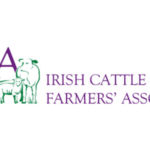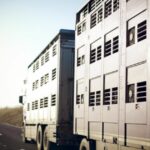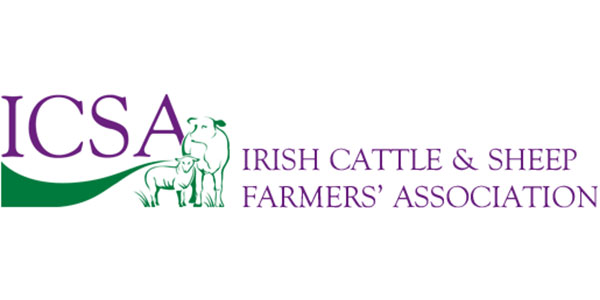28 JANUARY 2021
New ICSA president Dermot Kelleher today told Minister McConalogue that he must drive on the campaign to develop a suckler beef brand. Speaking at the ICSA AGM and conference, Mr Kelleher said, “There must be absolute commitment from all stakeholders to turn this dream to reality.”
“The first steps have been taken at the Beef Taskforce, with the commitment of funds to Bord Bia for initial market research and development. But on its own, this will not be enough. I don’t want to see us falling at the first hurdle. Developing a suckler brand will require trial and error. It will need absolute commitment from Bord Bia and 100% support from the Minister and the Department.”
“It will also need full buy-in from meat factories and, to concentrate minds, I am calling on the Minister to attach conditionality to the €100 million Brexit funds secured for processors. I believe that there are two essential conditions that should apply to beef processors getting some of this money. The first is absolute commitment to price transparency and co-operation with the food ombudsman. The second is that meat processors who are committing their own resources to the suckler brand should get priority for the funding.”
“This fund is explicitly for the processing and marketing initiatives of processors and we believe that it must be used to develop suckler beef as a premium brand with a view to returning a strong premium to suckler beef producers.”
The ICSA leader called on the Minister to find a solution to the BEAM scheme difficulty. “We cannot have a scenario where thousands of farmers are forced to return badly needed money due to missing the unworkable 5% reduction. ICSA has already proposed that alternatives such as trailing shoe and protected urea be used as an alternative for those who don’t meet the 5%. This is actually a more true and genuine way to reduce carbon rather than selling cattle to other farmers which doesn’t achieve anything. An extension to the end of the year is not the solution, it is simply kicking the can down the road.”
“We want the minister to deliver a significant portion of the €1.05 billion Brexit Adjustment Reserve to the drystock sector. Cattle and sheep farmers are enduring their fifth year of economic turmoil because of Brexit. Uncertain market conditions remain, and the impact of that market uncertainty continues to hit hardest in in the lower income farming sectors.”
“In the longer term, ICSA wants a CAP that prioritises low-income cattle, sheep and tillage farmers. The eco-scheme must be simple, and it should favour less intensive farmers. The eco-scheme should not set a bar too high to prevent a substantial payment under a new REPS type scheme in Pillar 2. ICSA believes that a trebling of the current GLAS budget is the only realistic way to approach a new Agri-Environment REPS type scheme.”
“Farmers must be given the means to deliver on ambitious targets and rewarded for their contribution. We must ensure that those who did most for biodiversity in the past are not disadvantaged in the future. ICSA wants to ensure that there are no more penalties in Pillar 1 for those who prioritise maintaining land in a more ecologically friendly way and in line with Pillar 2 objectives. In short, we want a scheme that means that the farmer who participates can see a real financial benefit over the farmer that doesn’t.”
Mr Kelleher urged Minister to inject a new sense of urgency into the Beef Taskforce. “Progress has been too slow, and farmers want to see results. The Food Ombudsman is a welcome development, but we want to see the necessary legislation put in place that will give the position real powers.”
“ICSA also wants to see greater price transparency around sheep meat. Sheep farmers are not getting a fair share of the end value of their produce, and this is just as much of a problem as it is in the beef sector. We want to see a bigger and better Sheep Welfare Scheme that would significantly increase the financial reward to sheep farmers. ICSA is proposing that a per ewe payment of €30/hd is now essential. We also want to see the Minister and Department work with ICSA to devise a plan to make wool valuable again.”
On the TB Eradication Strategy, Mr Kelleher said, “There are differing viewpoints that remain between the Department and farm representatives when it comes to the objective of TB eradication. ICSA maintains that sound strategy must be based on fair play for all farmers and a recognition that full and accurate compensation is the essential foundation of success.”
Mr Kelleher expressed alarm at the EU Biodiversity Strategy and insisted that there is no more room to designate land when we still don’t have proper compensation scheme for existing designations. “ICSA is extremely concerned at unworkable ideas in the EU strategy to have extreme restrictions on 10% of the total farmland area in Europe and designations on 30%. This needs to be pulled back to some form of reality at EU level.”
“ICSA is fully supportive of increasing supports for organic farming but it can only be done in parallel with a plan to increase markets for beef and cereals in particular.”
Mr Kelleher said that he was supportive of increased supports for tillage, but he had concerns about the plans to pay tillage farmers to incorporate straw in the soil. “We need to ensure we have adequate straw, for animal welfare and as the foundation of organic farming systems. We need to look again at how we can get more land into tillage and make it profitable and at the same time we must ensure adequate straw for livestock systems.”
Mr Kelleher was addressing Minister Charlie McConalogue and members of the ICSA National Executive at ICSA’s AGM and Annual Conference which was held by video conference today (28 January 2021).
ENDS




